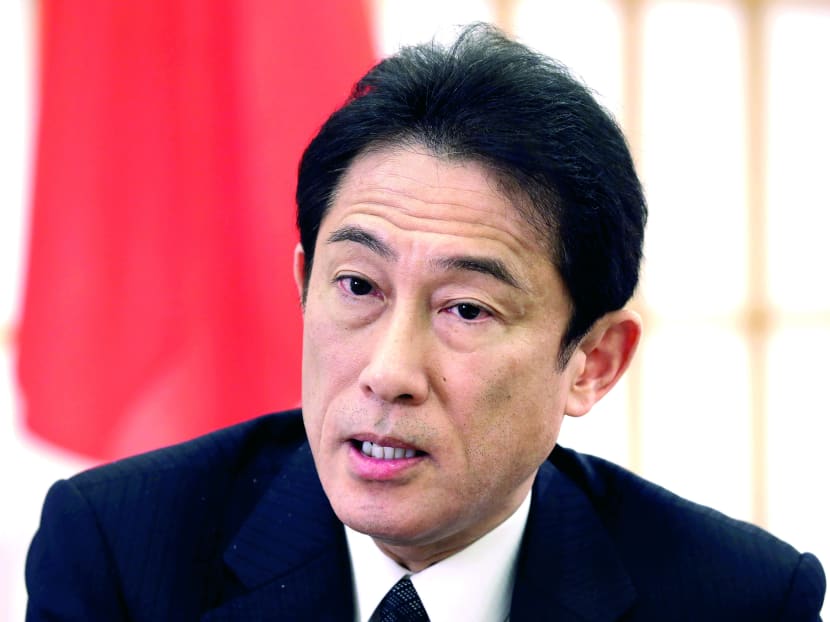Japan government distances itself from comments on WWII
TOKYO — Japan’s Foreign Minister is trying to distance his government from recent right-wing comments on World War II, calling them “regrettable” and saying they do not represent government views.

Japanese Foreign Minister Fumio Kishida during a interview with the Associated Press at the Foreign Ministry in Tokyo on Monday. Photo: AP
TOKYO — Japan’s Foreign Minister is trying to distance his government from recent right-wing comments on World War II, calling them “regrettable” and saying they do not represent government views.
In an interview with The Associated Press, Mr Fumio Kishida also said that China’s military expansion in the region is a concern, but he stopped short of calling it a threat.
New officials at public broadcaster NHK drew criticism recently when one denied the Nanjing massacre happened and another downplayed the use of so-called “comfort women’’ as sex slaves in World War II.
The statements drew angry responses from China and South Korea and were seen by many as evidence that the government is shifting to the right.
Mr Kishida said there have been no changes to Japan’s foreign policy and historical views.
“It is very regrettable if these remarks have caused misunderstanding about the Japanese government’s position,” he said.
The government apologised to the former comfort women in 1993 and, more generally, for its “colonial rule and aggression” on the 50th anniversary of the end of World War II in 1995.
Prime Minister Shinzo Abe has said repeatedly that he stands by those statements, but has also raised questions in the past about the portrayal of Japan’s role in the war. The comments by the NHK officials are among a series of developments in recent weeks that suggest his government may be pushing a conservative, revisionist agenda.
China and South Korea have fanned those fears, raising concern in Washington that their history disputes with Japan are further inflaming tensions in the region over territorial disputes and other issues.
Asked if he sees China as a threat, Mr Kishida said China was one of the most important countries for Japan. “If China develops peacefully, it is a benefit and an opportunity for Japan, and for the region ... In that sense, I think China is not a threat to our country.”
But he said its growing maritime activities and military development “are common concerns of the entire region” that Japan would watch closely.
Meanwhile, as part of its efforts to improve relations with South Korea and China, Mr Kishida said Japan will try to move towards a meeting by continuing exchanges with lawmakers and private citizens, as well as lower-level talks.
Mr Abe has frosty relations with the leaders of China and South Korea, and his attempts to meet with them in his first year in office were rebuffed. AP






